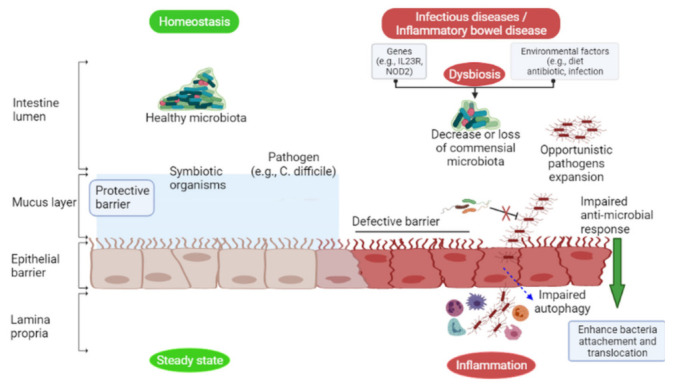Figure 1.

Under homeostatic conditions (left green), certain Gram-negative commensal bacteria induce IgA and IgG antibody production from B cells, recognizing Gram-negative bacteria surface antigens (flagellin, LPS) in the intestinal lumen, thus contributing to host defense against symbionts and pathogens. Symbiotic organisms stimulate mucus production to prevent enteric pathogens from colonizing the intestinal mucosa. However, during dysbiosis (right red), a decrease or loss of commensal bacteria in the intestine may result in opportunistic pathogens (e.g., C. difficile) infection due to the secretion of virulence factors (toxins) that damage and breach the epithelial layer, causing inflammation.
